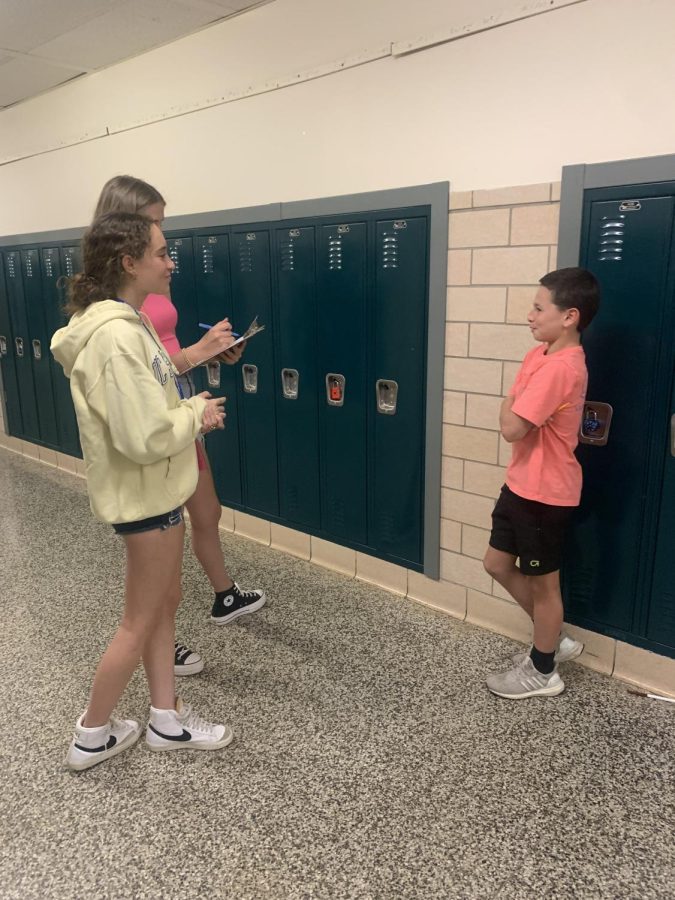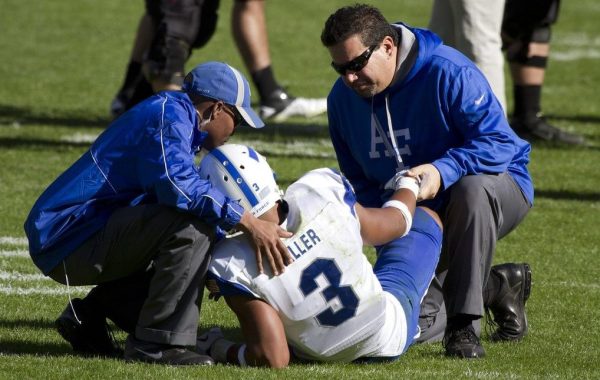Phones aren’t tiny evil robots
Ever since the all-powerful computers in our pockets became the norm, students have been dangling the little cheating devices in front of teachers’ faces. Obviously, using a phone in class has been essentially outlawed. If the teacher sees a phone? Boom! In the drawer of the teacher’s desk, never to be seen again (until the end of the day, an eternity for a middle schooler).
Now, in 2023, with modern technology and modern school subjects and electives, not using phones in class brings up a whole new crop of issues. Specifically in Journalism, a class that relies heavily on the usage of word-for-word quotes from interviewees. About midway through the school year, Edison Intermediate School (EIS) cracked down on phones in the classroom. If they see it, they take it. Unfortunately, this leaves the Journalism students with cramped hands and messy writing. Not to mention the awkward pauses while the interviewee tries their best to write down what their interviewee has said. This is a sentiment the students of Edison strongly agree with: “Students should be allowed to use their phones because when you’re writing, it’s hard to write and listen at the same time. Using phones allows students to gain more details and information,” said eighth grader Kira Lukashenko.
Phones aren’t just a distraction. With the ease of recording interviews to listen to later, this frees journalism students from the responsibility of keeping a meticulous record of everything said during the interview. They can ask more questions, probe for more answers, interview more people, and go a little more in-depth with their interviewees.
Even students who do not participate in Journalism agree. “I think I could handle using my phone in journalism, because if a teacher tells you to not do something, you wouldn’t go against it” argued seventh grader Meghan Riley.
Even though phones have the potential to be distracting doesn’t mean they always are. Not all students will choose to consciously disobey their teachers by using their phone for a non-academic related activity. Ideally, they are a good tool for students during interviews without causing them to be distracted from their work. Unfortunately, this isn’t an ideal world.
“Phones can become a distraction, and that’s why we’re hesitant with cellphone use,” stated the resident school tech consultant, Mr. Andrew Cusumano.
He’s not wrong. In the past few years, phones have become a growing problem for students tempted to pull them out during class time–especially in Journalism, where students are allowed to freely roam the hallways in search of interviewees. An excess of phones in the classroom prompted the administration to make new, stricter rules on phones in school about halfway through the year. Sadly, that’s why Journalism students are no longer allowed to record interviews. As can be expected, students were not happy about this new rule. “Phones should be allowed because it’s a lot harder to write everything down,” sixth grader Santi Gensler complained.
The author spent valuable time writing down the quote above while she could have been asking more questions–food for thought. As a sixth grader, Santi is not allowed to take Journalism until eighth grade, which shows that even students who are largely separated from the debate still have strong opinions on the topic.
The ‘no phone’ rule has gathered mixed support and disdain, with teachers and students taking both sides. Phones should be a tool to aid students with their schoolwork when it comes to tasks like the interviews in Journalism. Unfortunately, just a few students abusing the power this gave them to mess around while not in sight of a teacher ruins the opportunity for all. Sadly, there might not be an ideal solution to this growing problem. However, that won’t stop students from continuing to complain about it for all eternity.






